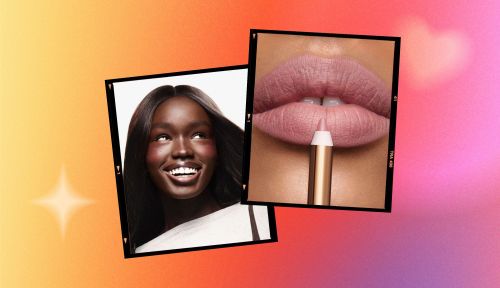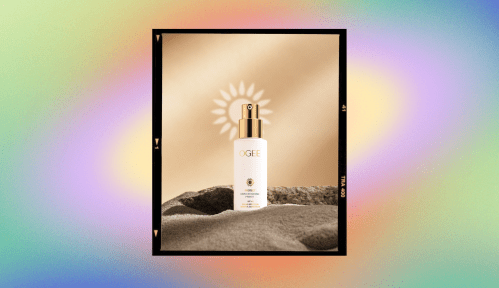Our editors independently select these products. Making a purchase through our links may earn Well+Good a commission
The ‘Big 3’ Skin-Care Ingredients Dermatologists Say Will Undo Summer Sun Damage
According to dermatologists, all you need to undo sun damage (and the visible signs of aging it causes) are the "ABCs" of active ingredients.

No matter how diligent you were about wearing SPF, the past few months of soaking up the sun may have left your skin a little worse for the wear. “Sun exposure over the summer months can lead to increased redness, sun spots, fine lines, and other signs of sun damage,” says Brian Hibler, MD, FAAD, a board-certified dermatologist at Schweiger Dermatology Group in New York City—and those are just the effects that are immediately visible. “Some of the sun damage is at the cellular level and isn’t readily apparent, but it accumulates over the years and can manifest as loss of elasticity, loss of volume, deep wrinkles, broken blood vessels, and mottled hyperpigmentation.”
Obviously, regular sunscreen application is important for avoiding all of these issues—especially because “90 percent of visible signs of aging come from unprotected exposure to UV light,” says Mona A. Gohara, MD, a board-certified dermatologist and associate clinical professor of dermatology at Yale School of Medicine. But—aside from going back in time and remembering to wear a hat at the beach—what can you do about the damage that’s already been done?
According to derms, combatting the visible effects of UV exposure is as easy as “A, B, C.” Keep scrolling for the alphabet of active ingredients you should be adding to your routine so that the memories of this summer’s fun aren’t written all over your face come fall.
1. Vitamin A (aka retinoids)
Retinoids—which are derived from vitamin A—are known to be one of the best of the best ingredients for combatting the effects of sun damage. “They’re converted to retinoic acid in the body, and have a number of benefits for the skin, including enhanced collagen synthesis, antioxidant and anti-inflammatory effects to repair sun damage, and increased cell turnover giving improved texture and tone to the skin,” says Dr. Hibler. What’s more, they can “reduce the tendency of cells and keratin debris to clump together and clog up pores,” which can make them helpful for clearing away any end-of-summer breakouts.
Basically, retinoids can do it all—and leave your skin with a smooth finish in the process. “They’re the quintessential collagen builders, as they increase collagen production and decrease collagen breakdown,” adds Dr. Gohara, naming retinol as the one ingredient she’d want if she were stranded on a desert island. “Retinoids even out skin tone, help to prevent acne, and fade acne marks. They are the best at fading and preventing fine lines.”
One thing to note: If your skin is on the sensitive side, board-certified dermatologist Hadley King, MD, recommends bakuchiol in lieu of a retinoid. Research has shown that this gentler, natural alternative can reduce sun damage just as well as retinol, and can improve the appearance of fine lines and wrinkles as well as skin elasticity and pigmentation—which means it will give you the same results as vitamin A without the irritation. “Bakuchiol seems to be activating the genes that regulate collagen and elastin production—the same ones retinol activates,” says Dr. King. “And it doesn’t seem to irritate and redden skin the way retinol often does, so it appears to be a gentler option.”
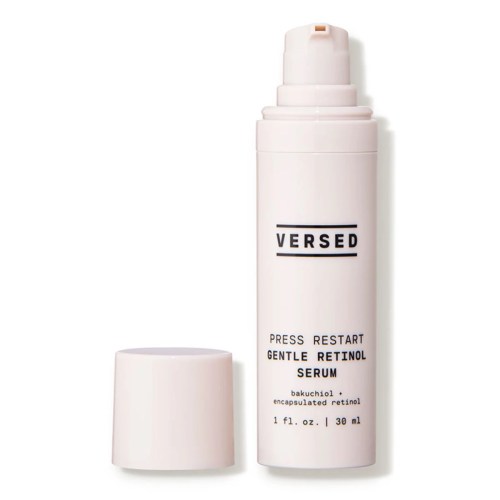
Versed Press Restart Gentle Retinol Serum — $22.00
2. Vitamin B3 (aka niacinamide)
Next up, in alphabetical order: vitamin B3, otherwise known as niacinamide. “Niacinamide is an antioxidant with brightening effects which can help fade dark sun spots,” says Dr. Hibler, adding that it can also reduce redness and blotchiness.
And that’s not all this multi-purpose ingredient can do. “It’s been shown in several studies to reduce signs of skin aging, particularly skin tone and texture,” says Dr. King, who likes the ingredient for treating hyperpigmentation. ” It also increases the skin’s production of ceramides, which help strengthen the skin barrier, preventing loss of moisture.”
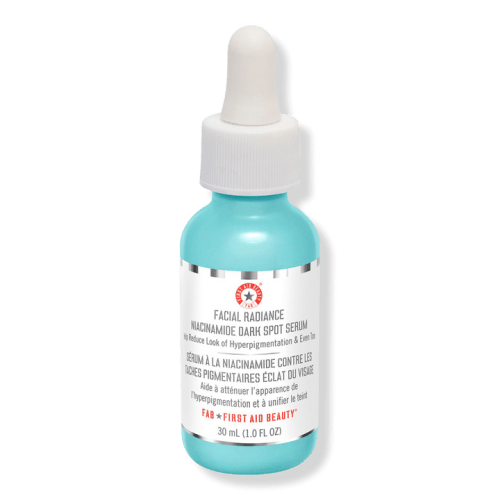
First Aid Beauty Facial Radiance Niacinamide Dark Spot Serum — $42.00
3. Vitamin C
“Vitamin C is a powerful antioxidant, which helps neutralize free radicals,” explains Dr. Gohara. “Free radicals are pesky chemical particles that come from UV light and pollution. They wreak cosmetic havoc on the skin, and they can contribute to the formation of skin cancer. It’s amongst the most powerful antioxidants; it helps to build collagen, even out skin tone, decrease fine lines and wrinkles, etc.”
Not only does vitamin C minimize the visible effects of past UV exposure, but it can also prevent future damage from occurring. “Studies have shown that vitamin C is effective in protecting against damage induced by UV light, and also has utility in the treatment of photodamage,” says Dr. King “Photodamage can create dark discolorations and dark spots, therefore vitamin C can help prevent and lighten dark spots that are the result of UV damage.”
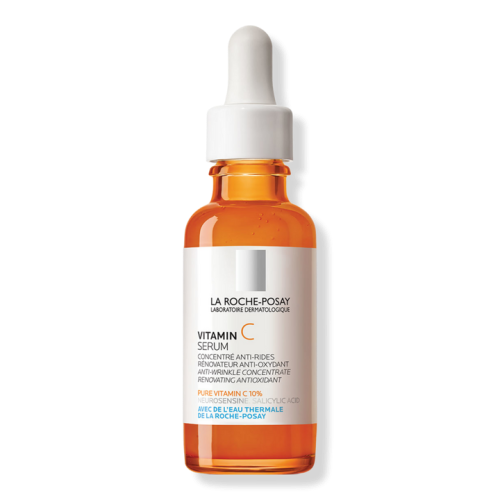
La Roche-Posay Pure Vitamin C Face Serum — $42.00
Sign up for the Well+Good SHOP Newsletter
Get exclusive deals on wellness, beauty, fitness, and food products that have been hand-picked by our editors.
Got it, you've been added to our email list.



